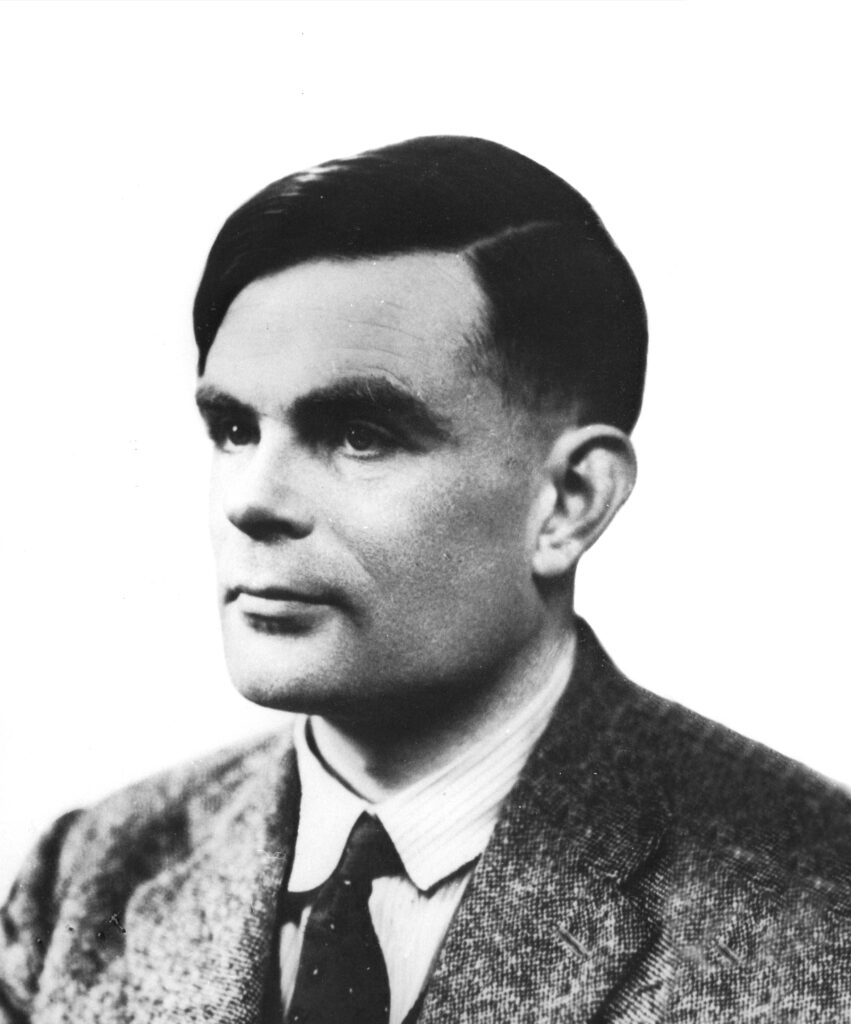2024 is a special year for The University of Manchester as we celebrate our 200th anniversary! This amazing milestone gives us an opportunity to reflect on all of the amazing and inspiring individuals who have made Manchester what we are today.
That’s why we’re delighted to share this series of blog posts written by our students – sharing the stories of individuals who inspire them from Manchester’s past and present.
In this post, second year student Ethan, shares why he is personally inspired by the life of Alan Turing.
Alan Turing (1912 – 1954)
by Ethan, BSc Hons Psychology, Year 2

Manchester is a city most commonly known for its vast cultural diversity, and the impact that it had during the industrial revolution. It has also been home to numerous remarkable individuals, and among them stands Alan Turing. Alan was a visionary mathematician, and the papers that he published during his doctorate still serve as the foundation of modern computer science. Furthermore, he is also famously known for his role in the Second World War, in which he and his colleagues were able to decipher and crack the enigma code used by Germany. It is said that his work shortened the length of the Second World War by two years.
Alan’s connection to Manchester began in 1948, when he joined The University of Manchester, taking up the role of Deputy Director of the Computing Laboratory. It was here, that Turing worked on software for one of the earliest computers, the Manchester Mark 1. In 1950 Turing also developed the ‘Turing Test’, which has can be used to assess the development of artificial intelligence. This aspect of Turing’s work is particularly intriguing to me, as it aligns with topics I’ve explored during my psychology degree, such as cognition.
Growing up in a world shaped by technology, I am constantly reminded of Turing’s influence, knowing that his ideas and the work conducted in Manchester have had a huge impact on modern society almost 80 years later. It’s really inspiring to think that a man who studied at the same place as me has had such an immense impact on the world through his contributions to technology.
Furthermore, as a member of the LGBTQ community, Turing’s legacy holds personal significance for me. Despite his contributions to both science and technology, Turing faced discrimination and persecution due to his homosexuality. In 1952, he was prosecuted for gross indecency related to his relationship with another man. An inquest concluded his death from cyanide poisoning two years later was suicide. However, thanks to the efforts of activists and supporters, Turing’s legacy has not been forgotten. In 2013, Turing was granted a royal pardon for his conviction, and since 2017 under ‘Turing’s Law’, thousands of men and women have been pardoned of similar convictions. He is therefore an important figure for many gay men as his pardon set a precedent for overturning similar historic convictions.
His courage in embracing his identity during an era of oppression is profoundly inspiring to me, as I believe that people should be proud of their identities and be comfortable with who they are. Alan Turing has become an icon for LGBTQ people, and it is only right that his legacy is honoured by those who are aware of the significant impact he has had on society. Alan Turing’s bravery, innovative thinking and lasting influence, motivate me to embrace who I am, stand up for what I believe in, and advocate for a more inclusive world where everyone is accepted for who they are.

